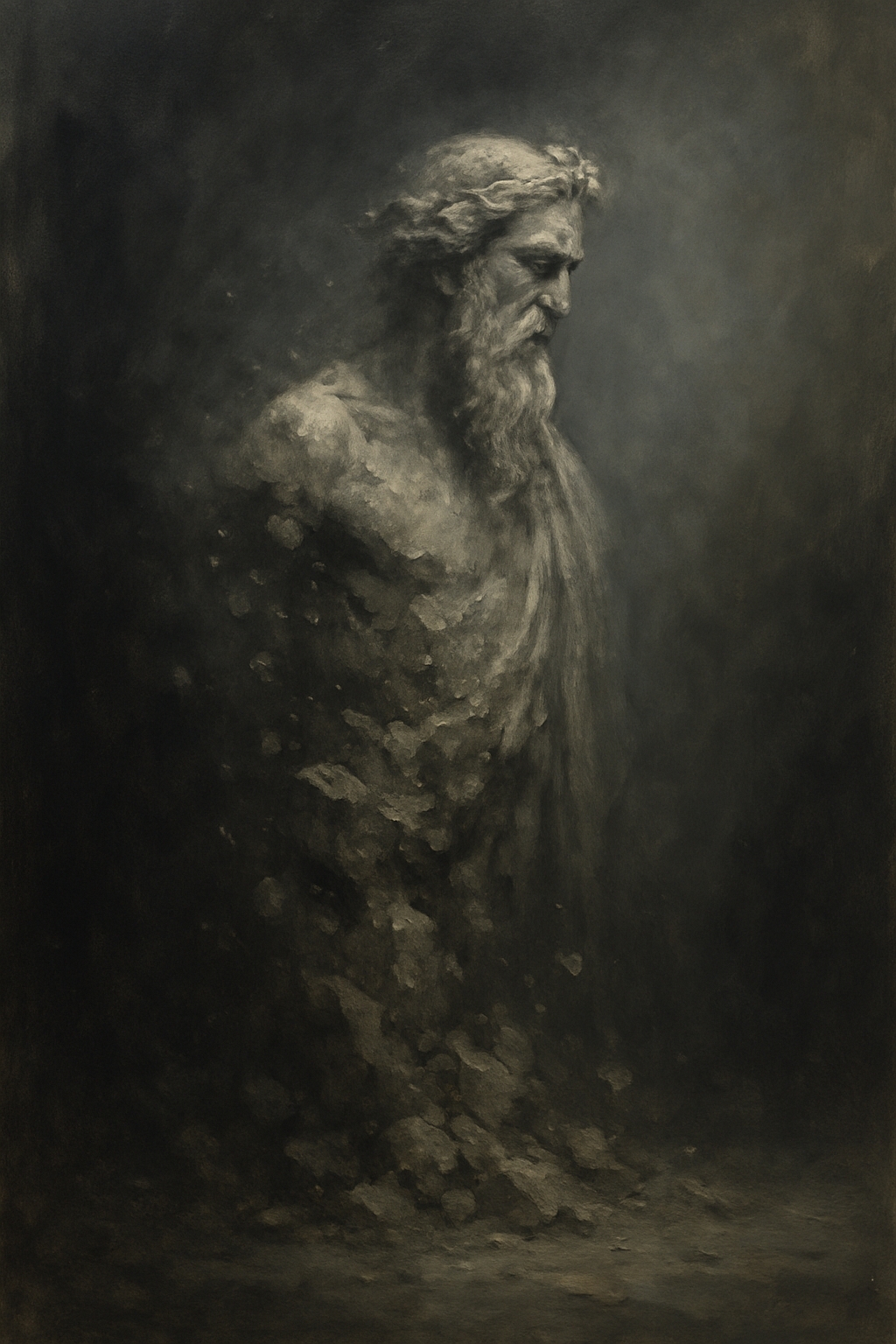The old God is dead. The personal God of the churches fell under the weight of science. The deist God of philosophers fell under the blows of reason. Yet the word “God” never vanished. Too many people cannot let go of it. Instead, they cut it down. They stripped it of power, personality, and transcendence until almost nothing remained. What survives is a God so reduced, so extremely limited, that He barely exists.
Why theism and deism collapsed
Science tore down theistic explanations. Charles Darwin explained life through evolution. Copernicus, Galileo, and Newton showed the heavens running by law, not by angels. Neuroscience revealed thought without souls. Physics revealed matter without creation.
Philosophy cut deeper. David Hume dismantled miracles as unreliable testimony. Laplace famously told Napoleon that he had no need of the God hypothesis. Ludwig Feuerbach showed that God was a projection of human hopes. Friedrich Nietzsche declared that God was dead because belief no longer fit the modern world. Deism fared no better. A watchmaker who never interferes is not a god but a metaphor.
Morality finished the demolition. Voltaire turned bitter after the Lisbon earthquake, asking what providence could allow such horror. Dostoevsky’s Ivan Karamazov rejected any God who permitted the suffering of children. The Holocaust and Hiroshima made divine benevolence impossible to defend. Both the theist God and the deist God collapsed.
There go my humble arguments: People fear for their lives, but why, if there is heaven? In heaven, people would come from completely different cultural backgrounds, from different ages and cultures, making it impossible. (250 Arguments for Atheism, Jan Bryxí 2025).
The birth of the “Stripped-Down God”
Yet not everyone accepted atheism. Many thinkers clung to fragments. They stripped God of miracles, power, and judgment. They left Him as symbol, ideal, or vague principle. This stripped-down God was not a being but a shadow.
Historical figures of the stripped-down God
Tomáš Garrigue Masaryk treated Christianity as moral culture, not as truth from heaven. Immanuel Kant kept God only as a postulate of practical reason, necessary for morality but not provable. Albert Einstein rejected a personal God, speaking of “Spinoza’s God,” a poetic name for cosmic order.
Spinoza himself dissolved God into nature. Voltaire dismissed dogmas but still whispered about a deist clockmaker. Blaise Pascal’s wager reduced God to a gamble, already shrinking Him to utility. Wittgenstein muttered about the mystical, but never described a personal deity. Herbert Spencer disguised divinity under “the Unknowable.” Matthew Arnold turned God into “a stream of tendency that makes for righteousness.”
Even American leaders did the same. Thomas Jefferson cut miracles from the Bible with scissors. Abraham Lincoln invoked God but doubted divine justice. John Adams mocked orthodox Christianity but still spoke of Providence.
Contemporary figures of the stripped-down God
The same pattern repeats today. Karen Armstrong champions myth and compassion as “God.” John Shelby Spong stripped Christianity of resurrection, miracles, and virgin birth, but refused to abandon the word “God.” Paul Tillich redefined Him as the “ground of being,” something too abstract to worship.
Jordan Peterson talks of God as metaphor for order, not a living being. Richard Dawkins, while atheist, once admitted to being a “6.9 out of 7” atheist — leaving a sliver of possibility that resembles the stripped-down God. Slavoj Žižek openly denies God but endlessly plays with Christian symbols, keeping the vocabulary alive while emptying its content.
Politicians follow the same strategy. Václav Havel spoke of “higher responsibility” but never of divine law. Barack Obama invoked God in speeches, but always vaguely, safely, without theology. Angela Merkel, daughter of a pastor, often mentioned God but never in ways that conflicted with secular politics. Even Donald Trump used the phrase “God bless America” without the slightest belief behind it.
Celebrities and scientists join in. Stephen Hawking spoke of “knowing the mind of God” while being a strict materialist. Carl Sagan described “the God of Spinoza” but denied miracles. Modern spiritual writers like Deepak Chopra redefine God into cosmic energy or consciousness, words stripped of meaning.
Why they cannot let go
Why keep such a cut-down God alive? Tradition is one reason. For Masaryk, Christianity was culture. For many politicians, it is still heritage. Psychology is another. People fear emptiness, so they keep “something.” Social respectability matters too. It sounds softer to say “I believe in a higher power” than to declare atheism. Politics plays its role: God talk, however vague, still attracts voters.
Critique of the “Little God”
But honesty suffers. The stripped-down God is an admission of defeat hidden under metaphors. He creates nothing. He acts nowhere. He judges no one. He is nothing but symbol. That is not God. That is cultural nostalgia. To speak of such a God is to avoid clarity. It is easier than saying: I am an atheist.
Conclusion
Theism is dead. Deism is dead. What survives is a little God, extremely limited, stripped of divinity, cut down to metaphor. He is barely there, almost gone, yet still whispered about by philosophers, politicians, and intellectuals who cannot say goodbye. The future offers two roads. One is honesty: admit atheism. The other is clinging to a God so reduced that He hardly exists at all.

Leave a Reply